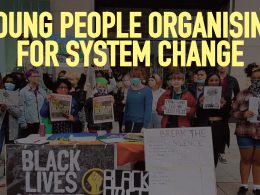After my mother, Susie Long, died in 2007 after waiting seven months for a potentially lifesaving diagnostic procedure which private patients were receiving within days at the same hospital I naturally became concerned about the link between income inequality and inequality in health in our society.
According to the Institute of Public Health report “Inequalities in Mortality” over five thousand premature deaths could be prevented every year in this country if social inequality, and therefore the stresses and hardships that inequality begets, were eliminated.
Of course health inequality is not the only discrimination that people on lower incomes face but it is one example of how an unfair system can impact on the quality and even length of people’s lives.
However, any attempt to right the wrongs of social inequality would require a major redistribution of wealth and resources. It is quite clear that none of the mainstream parties would be capable or even willing to undertake such a process.
Under capitalism power is concentrated in the hands of people who have money which is why for instance, globally there is much more money being spent on finding a cure for baldness then malaria, even though the latter kills nearly one million children every year. The markets will never drive politicians or scientists or anyone else for that matter to do the right thing.
After studying politics and history at third level for almost three years I have only become more convinced that capitalism cannot be reformed. Until we move to a society where economic power and not just political power is democratised, these injustices will never be fully eliminated and millions will suffer as a result.












